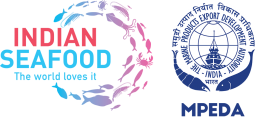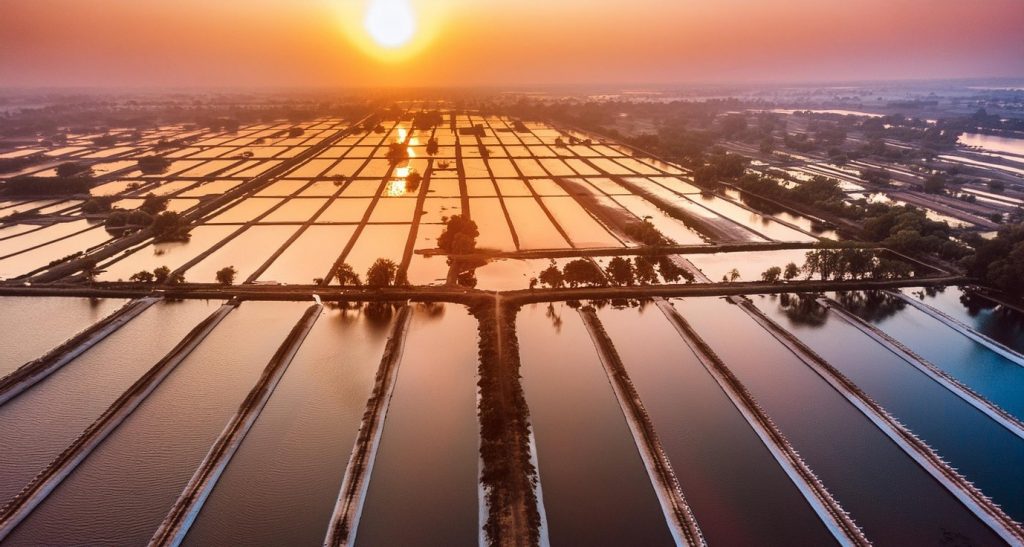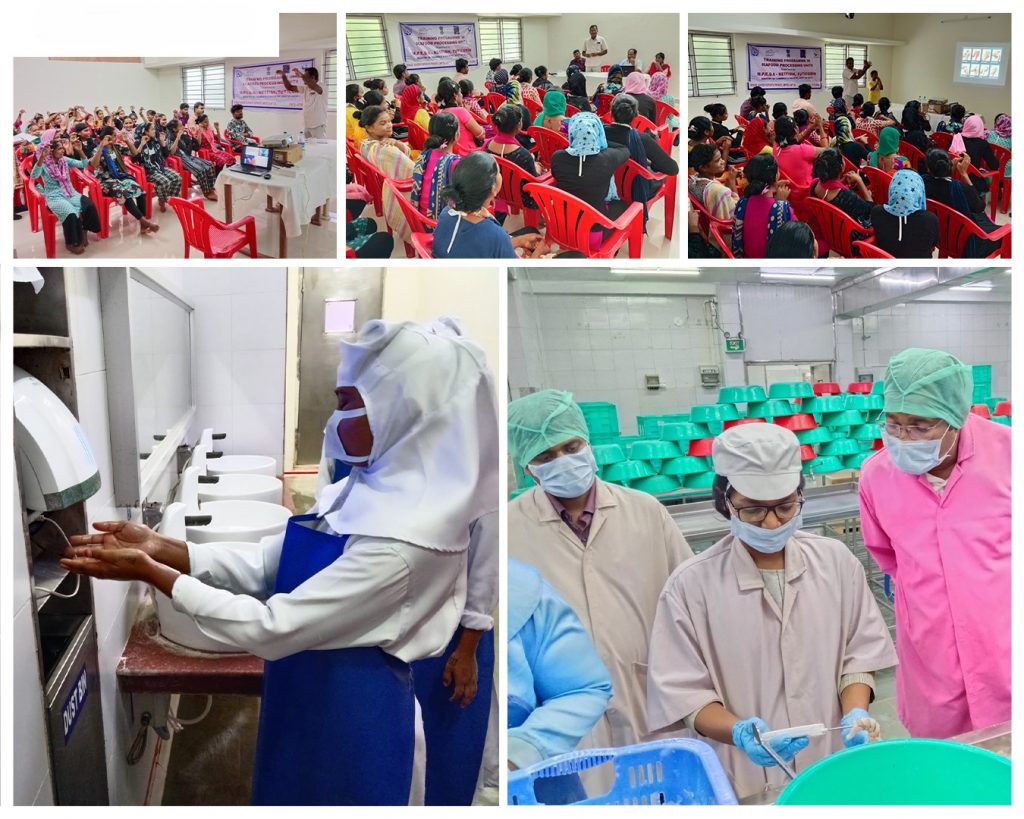“India’s Progressive Path in Sustainable Aquaculture” explores India’s multifaceted approach to ensuring its aquaculture sector’s sustainability. As the 3rd largest fish producing and 2nd largest aquaculture nation, India faces the dual challenge of increasing its seafood output to meet both domestic and global demand while minimizing environmental impact and ensuring social equity within the sector.
Sustainable Aquaculture in India
Aquaculture in India is not just an economic activity; it’s a lifeline for millions. The sector provides employment to over 14 million people and plays a crucial role in food security and nutrition. However, As the aquaculture sector rapidly expands especially for brackish water shrimp cultivation, it will naturally attract allegations pointing to environmental degradation including mangrove destruction, water pollution and abuse of antibiotics leading to antimicrobial resistance (AMR).
Regulatory Framework and Certifications
The Indian government, through the Coastal Aquaculture Authority (CAA), has put in place strict regulations to ensure that aquaculture practices do not harm the environment. The CAA mandates that all aquaculture farms obtain licenses and adhere to specified guidelines that include Sustainable aquaculture practices, assurance of water quality, safe disposal of effluents, habitat and mangrove protection etc.
Moreover, MPEDA is instrumental in promoting standards at par with international certifications such as Best Aquaculture Practices (BAP) and Hazard Analysis Critical Control Point (HACCP) etc. which also covers, proper documentation of inputs, culture, operations, water quality parameters, feed and measures against abuse of banned antibiotics. MPEDA also advocates the farmers with Good Aquaculture Practices (BMPs) through its field offices and the National Centre of Sustainable Aquaculture (NaCSA) which operates among the farmers. MPEDA has initiated SHAPHARI certification for all establishments coming under the Aquaculture production sector.
Addressing Environmental Concerns
The Coastal Aquaculture Authority license is mandatory for operating any Brackishwater aquaculture farm including shrimp, Scampi, crabs or fish. This assures controlled stocking density, bio-secure aquaculture and utilization of resources assuring the protection of the environment, especially Mangroves. MPEDA’s farm enrolment is mandatory for all aquaculture farms which do export-oriented production targeting the European Union since the Pre-Harvest Test (PHT), which is the regulatory requirement for EU is possible for the produce only from MPEDA enrolled farms.
PHT Certification will be given to those aquaculture produce which is screened for the presence of banned antibiotics, before harvest. Besides this, the farm produce and inputs will be tested for the presence of banned antibiotics and other pharmacologically active substances, through the National Residue Control Programme (NRCP) by MPEDA. MPEDA’s SHAPHARI Certification for farms, Hatcheries and Feed mills will be given to those who pass consecutive tests for the presence of banned antibiotics. All inputs used in an aquaculture farm from feed to other inputs, must have a CAA license number. This number is obtained only after thorough testing to ensure that banned antibiotics are not present in the inputs. This provides added assurance of the safety and quality of the farmed produce. Especially shrimp.
Community Engagement and Women’s Empowerment
Sustainable aquaculture in India also focuses on community engagement and the empowerment of women. Many aquaculture projects are designed to be community-based, ensuring that the benefits of aquaculture are equitably shared among local populations. MPEDA imparts regular training and capacity-building programmes for the farmers and farm workers in specific topics ranging from farming techniques to water quality management, Bio-security measures, Post-harvest handling, etc. The National Centre of Sustainable Aquaculture (NaCSA) of MPEDA operates among aquafarmers especially shrimp farmers helping them address all and everything related to farming and also helping them organise into aquaculture societies.
Challenges and Future Directions
The allegations on the presence of banned antibiotics and the issue of antimicrobial resistance will be rising from the major buyers of Aquaculture produce, especially farmed shrimp. However, the regulatory authorities of those markets will be implementing more and more testing for the presence of banned antibiotics and pathogenic bacteria in their products. India, however, has already empowered its farmers with the know-how that probiotics are the best way to reduce the proliferation of a pathogen on their farm. Use of pre-biotics, water, soil and gut probiotics- which are the consortium of beneficial bacteria are broadly being used by shrimp farmers across the nation. Novel technologies such as Bio-floc, and Aqua-mimicry, using heterotrophs (zooplankton) in aquaculture are under rapid infiltration into the shrimp farming sector- which points towards a bright future for the Indian Shrimp Farming Sector.
Conclusion
India stands as the major player in the aquaculture Sector and has achieved an all-time high export of USD 8.09 billion, in terms of quantity & value during 2022-23 which is also contributed by an all-time high 12,19,237 MT aquaculture production. This market demand itself demarcates the quality of the produce from the Indian Aquaculture sector. However, MPEDA will continue its strides in empowering the aquaculture Sector through timely interventions, quality assurance and uplifting the entrepreneurs and workforce with updated skills and advanced know-how. As India continues to navigate these challenges, it sets an example for sustainable aquaculture practices that can be replicated in other parts of the world.


